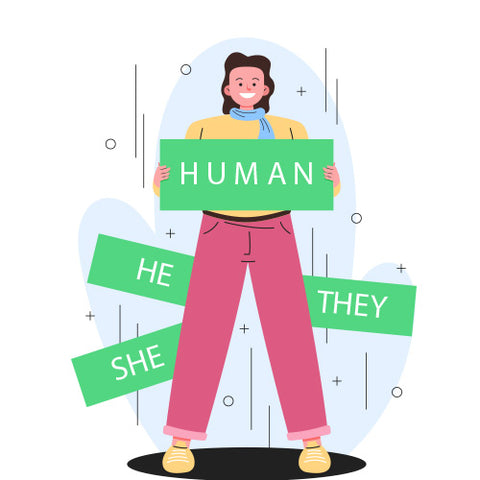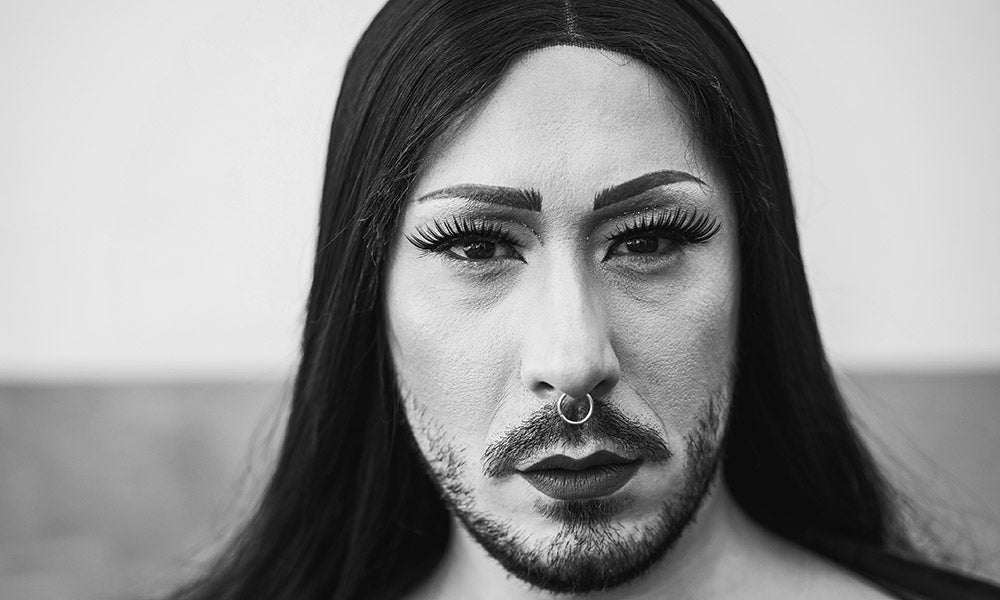From the time we are born, we are granted a name, an identity, a sex and also a gender. These decisions aren’t left for us to be made, but when some of us try to make these decisions for ourselves, societal constructs step in and pull us down. Time is changing and it is time we realize that nobody, but we, can decide our identities. Right to expression after all! (Well, I guess not applicable in India :P)
Understanding Gender And Sexuality

Sex is what is determined at birth according to our physical and physiological characteristics like reproductive parts and secondary physical characteristics like body hair. Male, Female and Intersex bodies are the sex we all are categorized into according to our physical characteristics.
Gender, on the other hand, is a socially constructed concept and refers to social or cultural distinctions associated with sex. Gender identity, however, is an individual’s identification of self as a member of a particular gender. For example. A person who is born a male, might not identify himself as a male, but as a female or none.
Sexuality refers to an individual’s sexual interests and attractions. This is a huge spectrum and can’t be just be confined to gays, bisexuals, lesbians, straights and asexuals.
People whose gender identity corresponds to their sex at birth are cisgender individuals. Those whose gender identity doesn’t correspond with their sex at birth are transgenders. Transgender is an umbrella term for all binary and non-binary identities.
Non-Binary Identities

Binary gender identity is used for people who identify themselves as either a male or a female. Transgenders who identify themselves as either, have binary identities. Non-Binary gender identity is used to describe individuals who neither identify themselves as a male nor as a female. Their identity usually lies somewhere in between or beyond the two genders. Commonly discussed non-binary identities include:
- Agender: Individuals with no defined gender.
- Bigender: Individuals with two defined genders that may exist simultaneously or alternatively.
- Genderfluid: Individuals who move from two or more gender identities.
- Genderqueer: A term used to define everyone with non-defined genders.
Problems Faced By Non-Binary Identities And Why Is Inclusivity Important

The greatest challange faced by the non-binary identities is not about employmemt or education ( though these challenges are pretty serious too) , but about the acceptance of their real identity. Imagine being born in India and supporting Australia for a cricket match. People will definitely ridicule you about your preference as you should support India conventionally. The gender identity war is very intense as they first struggle to identify themselves clearly, they struggle to accept their reality and then comes the struggle to get the acceptance from the family and society.
They often face discrimination in the education and employment sector as they are often treated as being “Not-Normal”, but we fail to understand that it is not necessary that what is in majority, shall be normal too. Anyone who is different, is pretty much normal as you and me. Who decides the “NORMAL” anyway?
Non-binary people often tend to fail the personality tests during the job interviews. They are barred from using the office toilets and are misgendered. Most of them have also complained about being uncomfortable sharing their gender identity.
Inclusivity is important for the very reasons for which feminism is important. Everyone, irrespective of the gender identities, should enjoy equal rights and opportunities. Right to expression is a basic right which we deprive them of. Gender identity is more about their dignity and pride than social acceptance.
What Can Be Done To Make Them Feel Comfortable?

Using appropriate pronouns isn’t everything, but is a basic courtesy. Any boy is meant to be pissed off of you call him a girl. This is the basic understanding behind using appropriate pronouns. The best way to know is to ask them which pronouns or a mix of pronouns do they want to be associated with.
Never ever make assumptions about people from this community. Prejudice exists but is not true for all. The spectrum is broad enough. How can the same set of assumptions be true for everyone in that community? One should always know the person well before assuming anything.
Never mention anything about the medical transformations unless they bring that up voluntarily. Hormones, sex change, etc are again a part of assumptions. If you ever make a mistake while talking to them, don’t make a big deal out of it. Just apologise for the mistakes you made earlier.
Don’t question their journeys or stories. Allow their stories to be flexible. It need not match their gender identity which they currently identify as.
Last and most important, spread knowledge about the LGBTQIA+ community, their concerns and challenges. Children need to learn from the very beginning that they are pretty much normal and how to help them.
End Notes
The 'Third Gender' was recognised legally in 2014, but as of 2021, they aren't yet accepted socially. There still are lack of infrastructure and socio-economic opportunities for the third genders or non-binary identities. It is time we all join hands and let them realise their Right To Expression. It is no more about social constraints, but about self-determination of their identities and their dignity. Humans support humans! Support @sanfeofficial in their efforts to bring about this social change and create a better world for WOMXN. Join the campaign by posting a story with their Instagram sticker. Just search @sanfe_online in the Ig GIF section and use it in your stories to show your support and make sure to spread the word! You can also send them your stories to get featured on their page. Go ahead!










